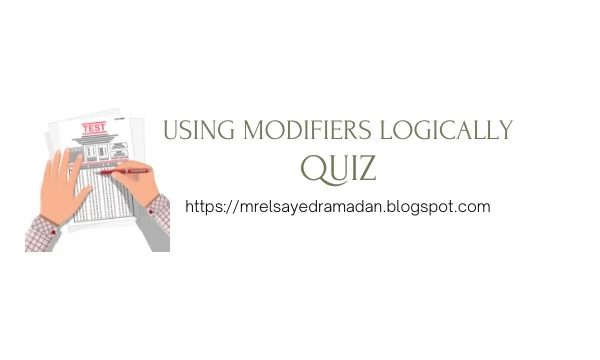Using Modifiers Logically Quiz
This blog post provides information on how to use modifiers correctly, which is important for clear and precise communication and is also a key aspect of grammar and sentence structure. The post includes a quiz to help students improve their understanding and use of modifiers, and it is a valuable tool for students of all ages and levels. The quiz will help students prepare for standardized tests such as the SAT, ACT, GRE, EST, and other graduate-level exams. The post is also useful for the digital version of the SAT.
1/8
In the second debate, she was able to emphasize her points much stronger than she did in the first one.
NO CHANGE
her much stronger points
her points much more strongly
much more her strong points
Explanation: Choice A is incorrect because the comparative adjective much stronger cannot modify the verb emphasize. The comparative adverb, more strongly, is required, as in choice C.
2/8
Although we love to hike as a family, we never usually get to spend extended time in the wilderness.
NO CHANGE
almost never
usually never
hardly never
Explanation: Choices A and C are incorrect because the adverbs never and usually are contradictory. Choice D is incorrect because hardly never is not an idiomatic phrase. The idiomatic phrases are hardly ever or almost never, as in choice B.
3/8
Once the storm winds subsided and their vehicles could be dispatched, the response teams coordinated their efforts much more effective than they had after the previous hurricane.
NO CHANGE
much more effectively than
much more effectively than they had after
much more effective than
Explanation: Choices A and D are incorrect because the verb coordinated cannot be modified with the adjective effective. Choices B and C use the proper adverbial form effectively, but choice B is incorrect because it makes an illogical comparison.
4/8
The joy on the children’s faces proved that the party was an unqualified success.
NO CHANGE
successfully unqualified
a disqualified success
unqualified in its success
Explanation: The original phrasing is best because one of the meanings of unqualified is total, so an unqualified success is a complete success. Choice B is incorrect because successfully unqualified is not a sensible phrase. Choice C is incorrect because disqualified means eliminated from competition because of a rule violation, which does not logically apply to a success. Choice D is incorrect because unqualified in its success is not idiomatic.
5/8
Good trainers know that, although challenge is a key to success, pushing athletes harder doesn’t always lead to better outcomes.
NO CHANGE
more hardly doesn’t always
more hard always doesn’t
harder always doesn’t
Explanation: The original phrasing is best: recall that harder can serve as either a comparative adjective or a comparative adverb. Choice B is incorrect because more hardly is an illogical phrase. Choices C and D are incorrect because the phrase always doesn’t contradicts the statement that challenge is the key to success.
6/8
Our chemistry teacher never told us about the test until three minutes before she gave it.
NO CHANGE
didn’t tell
never had told
hardly ever told
Explanation: Choices A and C are illogical because it is untrue that the teacher never told us about the test; she just waited until the last minute to do so. Choice D is incorrect because the phrase hardly ever implies a claim about a long-term trend rather than a specific event.
7/8
Even the drastic spending cutbacks won’t hardly address the growing budget deficit.
NO CHANGE
hardly wouldn’t
wouldn’t hardly
will hardly
Explanation: Choices A, B, and C contain double negatives that contradict a logical reading of the sentence. Only choice D provides a logical phrasing.
8/8
The works of absurdist playwrights such as Ionesco and Beckett exemplify the idea that plays need not rely on plot as a unifying element.
NO CHANGE
need not have to
don’t have the need to
have not to
Explanation: The original phrasing is best, even if it sounds strangely formal. The phrase need not is equivalent to do not need to. Choice B is redundant, because need to and have to are essentially synonyms. Choice C is wordy and implies illogically that plays can have human needs. Choice D is not idiomatic.

